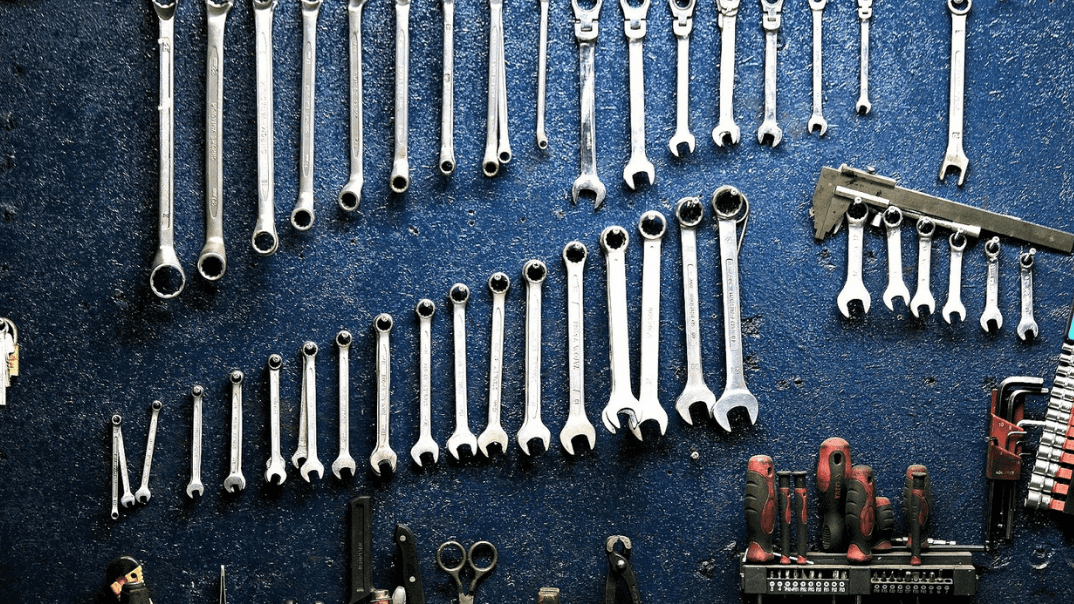 Whether you’ve been driving for ten years or ten days, the odds are you’ve had a moment with your car thinking ‘does that sound normal?’ And while it’s impossible to pinpoint a fault just by sound, there are a few signs you can look out for in order to spot a problem with your car before it becomes a crisis.Paying attention to your car, from small squeaks and rattles to the feel of the steering wheel, is a very good habit to train yourself into. It really is similar to noticing when your laptop is too slow, or your cell phone glitches more than normal - your car has become a necessity in many South African lives and part of looking after it is paying attention to the small things.
Whether you’ve been driving for ten years or ten days, the odds are you’ve had a moment with your car thinking ‘does that sound normal?’ And while it’s impossible to pinpoint a fault just by sound, there are a few signs you can look out for in order to spot a problem with your car before it becomes a crisis.Paying attention to your car, from small squeaks and rattles to the feel of the steering wheel, is a very good habit to train yourself into. It really is similar to noticing when your laptop is too slow, or your cell phone glitches more than normal - your car has become a necessity in many South African lives and part of looking after it is paying attention to the small things.
That said, there’s a very good reason why vehicle technicians have to undergo regular training and why reputable mechanics are so sought-after. Even if you think you know what the problem is, the best advice is still to seek out an expert. And don’t wait too long, because a relatively inexpensive fix can quickly deteriorate into a very expensive repair if you ignore it.
Here are a few tips to help you take the best possible care of your car:
1. Don’t skimp on brake pads
Brake pads fall into the ‘most often replaced’ category when it comes to car parts. All cars are different, and different size vehicles and wheels will need different types of brake pads, so there is no set time for how long they should last. You may need to rely on feelings and a subjective assessment of your car’s stopping distance to determine when your brake pads are ready to be checked or changed.
According to Arrive Alive, you can expect to replace brake pads every
30 000 km or so. But that is a very general estimate; driving style, road conditions, and vehicle load will all make a difference.
If you hear a grinding noise when stopping, or even just whilst driving, this can often indicate that your brake pads need replacing. But don’t make a point of not replacing them until you hear a noise! Because by the time you hear it, it often means they are dangerously worn down. Make sure they’re checked when your car goes for a service, even if it’s before 30 000 km and stay aware of the way your car feels as you drive.
When it comes to replacing brake pads, there are many options on the market. The safest choice, however, is to go with what your manufacturer recommendations, or have them replaced at an approved dealership. Yes, you could probably get a better deal online or through someone you know, but unless you’re an expert, you won’t know if you’re being taken for a ride.
Brake pads ensure your car stops in time, so they’re extremely important. This is one of those parts where you don’t want to go shopping for the best deal, because if you end up purchasing duds, it could end up costing you a lot more down the line.
2. Clutch
If you drive a manual car, you are engaging and disengaging the clutch every time you change gears. Naturally, the clutch wears down over time. There are also many factors that come into play from type of vehicle, driving conditions, driving style and even climate (they tend to wear out faster in warm climates).
One of the key signs that your clutch may need some attention is if your gears are ‘sticking’ - if it becomes difficult to get your car into certain gears. Another warning is a distinct ‘burning’ smell. If you don’t know what a burnt-out clutch smells like, this won’t help you very much, but it’s probably safe to say that anyone who notices a burning smell in their car will have it looked at immediately (we hope).
The clutch is part of your vehicle’s gearbox, which is one of the more complicated, and therefore more expensive components in a vehicle. It is therefore crucial that you don’t opt for a ‘quick fix’ at your nearest and cheapest mechanic. Any work that is done to your clutch or gearbox should be done by a professional, and preferably an approved dealer for the vehicle you’re driving. The reason is simply that all of these parts are linked, and are designed to work together in every car - and if you replace your clutch with an inferior part, it could affect the performance of your car overall.
3. Console buttons and levers
When we think of car parts, we usually think of gears and engines, but everything inside the cabin is equally important and subject to wear and tear. If you find that certain levers such as indicators, or buttons for the windows or radio are becoming difficult to operate or are slow to respond, you might want to ask your dealer to take a look.
Daily use can take its toll and there are many wonderful stories our there of radios becoming inoperable due to sand getting into the centre console, or inventive children ‘storing’ snacks in the very tiny gap between the door panel and the window. It’s better to have these checked as soon as possible, because the longer you leave it the more damage can occur.
4. Steering woes
Inaccurate steering is one of the problems we don’t always notice immediately, because we’re automatically correcting it without noticing. If you pick up that your car seems to be heading in its own direction when you’re just lightly touching the steering wheel, you may want to pay closer attention.
Obviously, a slanted road is going to affect the steering direction, so wait until you are on a flat, even piece of road to see if your car still veers in a certain direction. Inaccurate steering can have many causes from wheel alignment to poor tyre wear, and this is why you should have it inspected as soon as possible.
As mentioned earlier, it’s important to pay attention to your car’s ‘behaviour’ - this will help you pick up small problems before they lead to serious damage or unsafe driving conditions. And while it’s tempting to save money in the short term by opting for the cheapest parts you can find, the best way to ensure your car stays by your side for many years, is to have it fixed and serviced by a reputable mechanic. That’s the only way you can ensure your car is being looked after by people specifically trained on that vehicle.
Not diagnosing the small issues in your car can lead to a malfunction or an issue that can cause your car not to stop and lead to a bumper bashing. We hope it doesn’t happen BUT if it does you don’t need to panic. Suzuki has compiled a checklist of all the steps you have to follow if an accident should occur. This will allow you to keep a level head and ensure you follow all the right steps.

.jpg)
![[Update] Which engine oil is best for your car? Your manufacturer knows best!](https://blog.suzukiauto.co.za/hubfs/Suzuki%20engine%20oil%20is%20best%20for%20your%20car.png)
